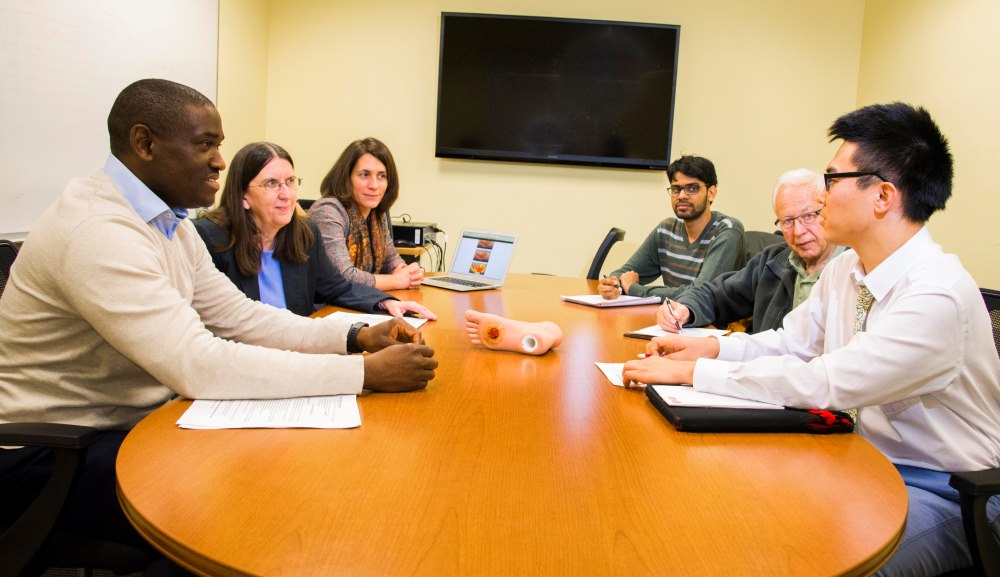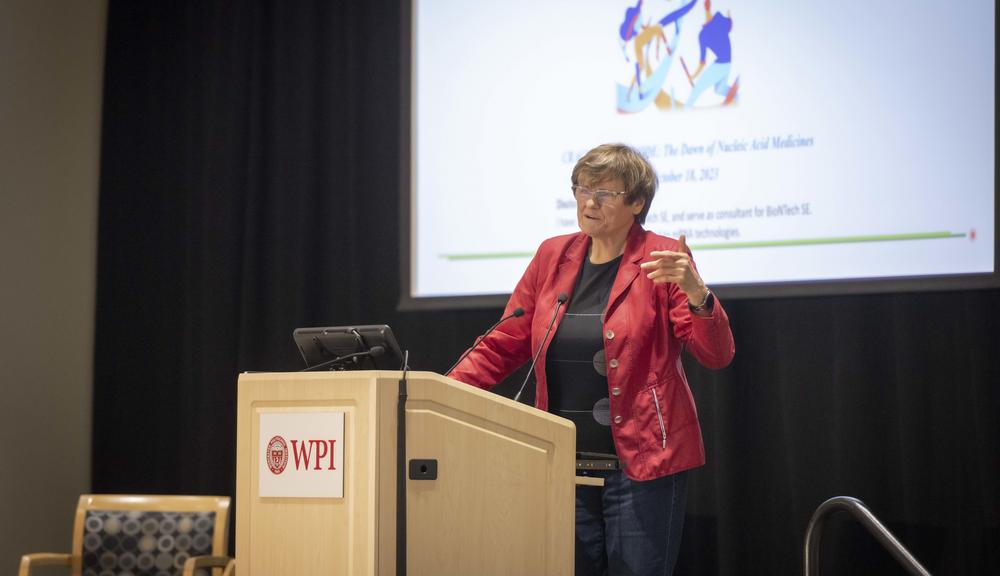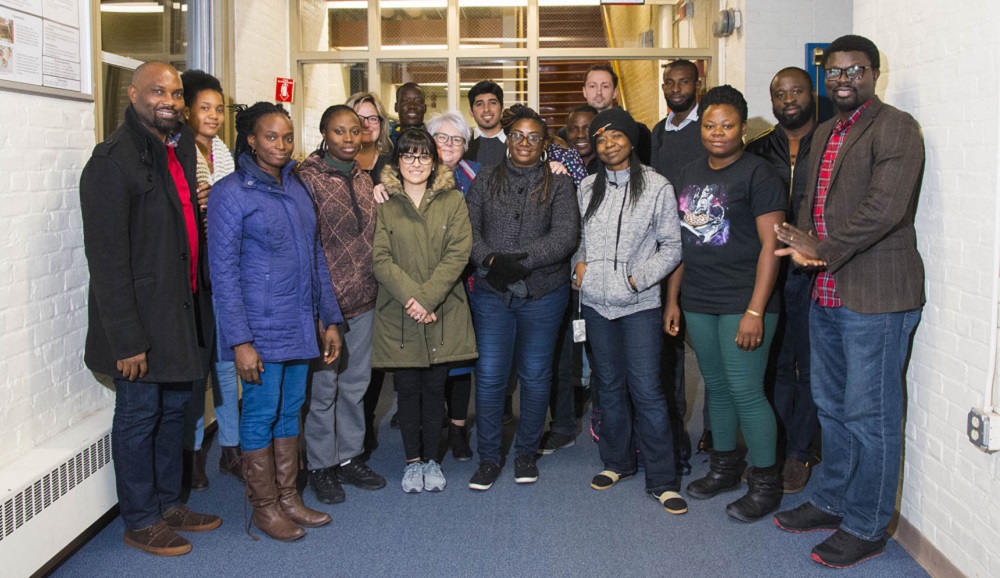In October, top researchers from around the world gathered at a prestigious program hosted by the Nobel Foundation—its first-ever symposium in Africa—to discuss the role that artificial intelligence (AI) can play in rigorous scientific methods in the twenty-first century. Among those in attendance were WPI Interim President Winston “Wole” Soboyejo and Emmanuel Agu, professor in the Department of Computer Science.
“Scientists everywhere wonder if AI will change the way they work or if the old system—where controlled experiments prove or refute a hypothesis—will be the way forward,” says Agu.
During the presentations Soboyejo and Agu offered a radical alternative: Instead of choosing either the traditional scientific path or a new tech-centered path, progress that touches people’s lives in meaningful ways will only happen when scientists merge their lanes.
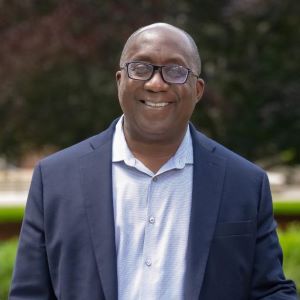
“Most scientists are only versed in one approach. They are used to being soloists. The big opportunity we have at WPI is to play the symphony,” says Soboyejo, noting that innovation and change happen when people step outside the confines of their expertise.
In his talk “Using Machine Learning to Address Real-World Problems,” Soboyejo highlighted WPI faculty and students who are combining intellectual curiosity, interdisciplinary collaboration, and cutting-edge technology to improve the quality of life for people around the globe.
One of the featured research teams, which includes Soboyejo and Agu as well as John D. Obayemi, assistant teaching professor in the Department of Biomedical Engineering, and David Clement, doctoral candidate in computer science, is drawing on AI to develop a program that can accurately detect breast cancer from smartphone images.
“That’s not trivial, and it shows the value of what we can do through collaboration,” says Soboyejo, underscoring the point that cutting-edge technology doesn’t have to be expensive. By making this kind of technology as accessible as a smartphone, doctors throughout the developing world will be able to diagnose breast cancer more readily.
The other research project Soboyejo showcased is using AI to design highly efficient and low-cost solar cells that could make electricity affordable for the first time to people in many parts of the world. Working with Soboyejo on the solar cell project are Rodica Neamtu, professor of teaching in the Department of Computer Science; Reisya Ichwani, postdoctoral fellow in materials science and engineering; and Stephen Price ’23 (BS/MS) in computer science.
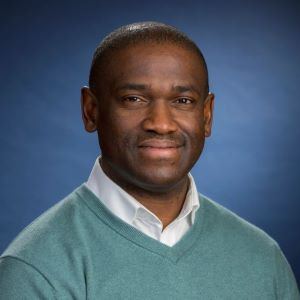
When describing the solar project at the Nobel symposium, Soboyejo shared what he calls the “map of opportunity,” which shows that many of the places lacking reliable access to electricity are also among the globe’s sunniest. Agu says that visual aid seemed to resonate deeply with participants at the gathering. “People could actually see how important it is to convert sunshine into electricity,” he says. “Afterward a researcher from France told me that Wole’s talk was the most impactful she had heard at the symposium.”
Agu and Soboyejo believe that’s because WPI’s hallmark approach—combining cutting-edge technology with strong scientific theory to create and deliver tangible benefits for people in need—is novel for many classically trained scientists in the developed world. That this was the first time an institution outside of Scandinavia has hosted a Nobel Symposium on behalf of the Nobel Foundation suggests that those in one of Europe’s most prestigious traditional institutions have begun to understand the importance of including diverse voices in scientific conversations. What’s more, Soboyejo adds, is that diversity relates not only to skin color but also to where, how, and why scientists are trained.
“This symposium invited the best thinkers across the world to interface with one another and elevate the level of scientific discourse,” says Soboyejo. “In that conversation I suggested we use AI to deepen our understanding of the world and broaden our opportunity for impact.”
His presentation not only focused a spotlight on WPI’s position on the global STEM map but also, Soboyejo and Agu hope, began building a foundation for collaborations that will make life better for millions of people living all over the globe.


